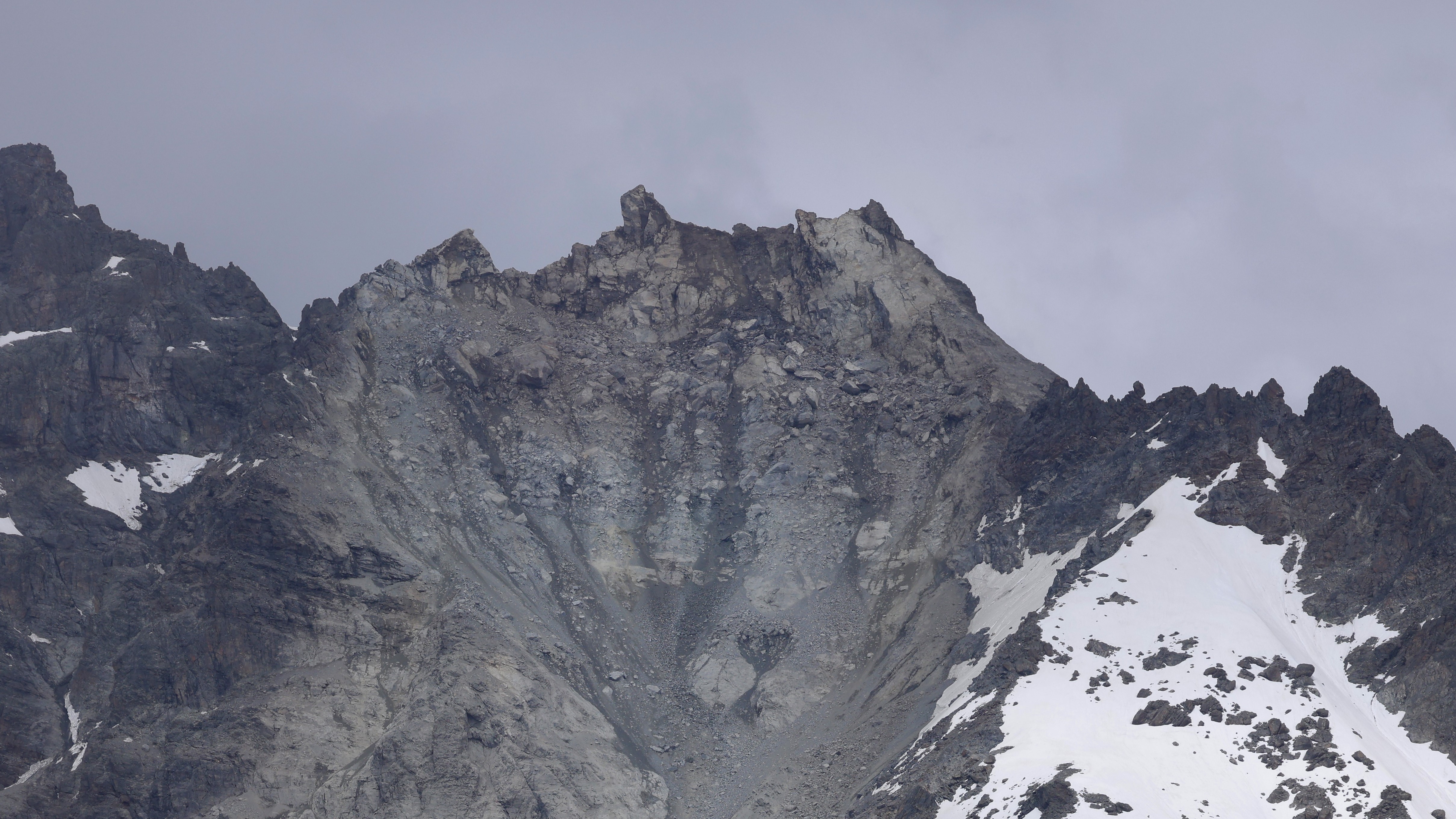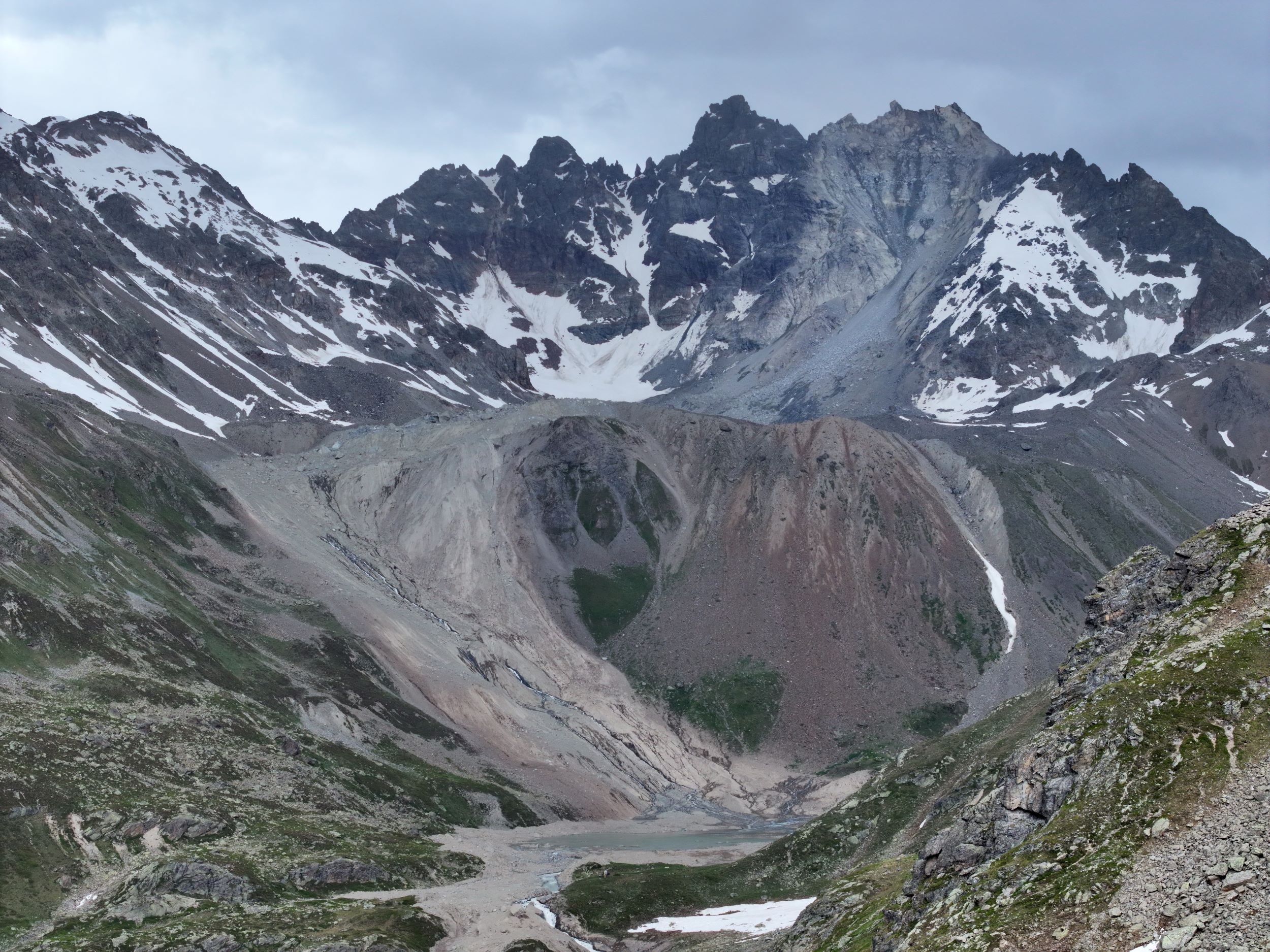
Part of a Swiss mountain's summit has collapsed, sending more than 3.5 million cubic feet (100,000 cubic meters) of rock crashing into the valley below. The incident was likely a result of thawing permafrost — and scientists have warned similar events are to be expected as climate change causes ancient frozen ground to degrade.
The incident occurred on June 11 after an extensive period of high temperatures in the country. Videos reveal the sudden collapse of Fluchthorn's summit, an almost 11,155-foot (3,400 meters) mountain in the Silvretta Alps, on the border of Switzerland and Austria.
"Half of the summit was torn away by the demolition," mountain rescuer Riccardo Mizio told Austrian newspaper Kronen Zeitung (translated), adding the summit cross — a Christian cross marking the peak of a mountain — was missing. No one was injured by the rockfall.
The main peak of Fluchthorn lost approximately 330 feet (100 m). It fell in the western area of the peak, in the Futschöl Valley. The middle peak, which stands at 11,145 feet (3,397 m) is now the highest point of the Fluchthorn — meaning the mountain is now around 60 feet (19 m) shorter than it was before.
Fluchthorn sits among the Mischabel massif, the highest group of mountains in Switzerland. The cluster of 11 peaks all sit above 13,123 feet (4,000 m), including the tallest — the Dom — which is 14,911 feet (4,545 m) tall.
Most mountain peaks above 8,202 feet (2,500 m) in the Alps are covered by permafrost, or permanently frozen ground, which runs deep into cracks in the solid rock, helping to glue them together. Without it, mountainsides can become unstable, leading to landslides and rockfalls.
Permafrost is strongly affected by climate change, as warm temperatures can cause ice in the cracks to unfreeze. Although this is not unusual in the summertime, when the layer above the permafrost tends to thaw for a short duration, more frequent heatwaves in the Alps are taking their toll, resulting in a gradual deepening of the summer thaw.

As the ground warms, permafrost thaw is expected to destabilize more rocks across the Alps, leading to more frequent landslides and rockfalls. "The bigger the size of the event, and in this case it was big, the deeper the thaw must have been," said Jan-Christoph Otto, a geologist at the University of Salzburg.
"This mountain peak has been frozen for probably thousands of years," Otto told Live Science. Due to a delay in climate change reaching deeper layers of rock, "the mountain peak failure at Fluchthorn is most likely the result of extreme temperatures last summer or fall," he added.
In the Alps, atmospheric temperatures have risen significantly over the past few decades. According to the Swiss Meteorological Service, temperatures in the Alps are warming at around 0.5 degrees Fahrenheit (0.3 degrees Celsius) per decade — around twice as fast as the global average.
Based on long-term data collected from sensors in the rockface, research shows that every 10 years the average temperature inside the rock has increased by 1.8 F (1 C).
While it's impossible to predict which peak or slope may fall next in the Alps, experts warn that similar rockfall events are to be expected in a warming world. Otto said there are hundreds of mountains in the Alps where permafrost is present. "Considering the ongoing temperature increase in the Alps, more events are probable," he said.







